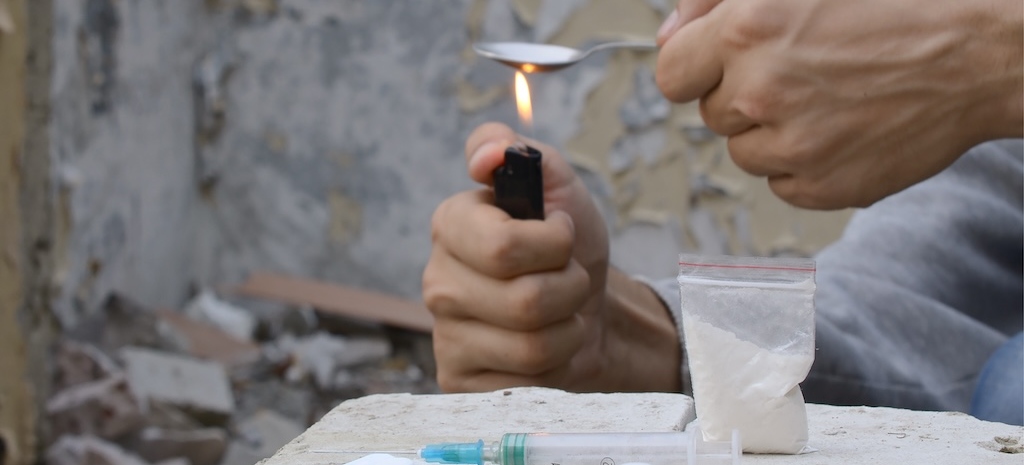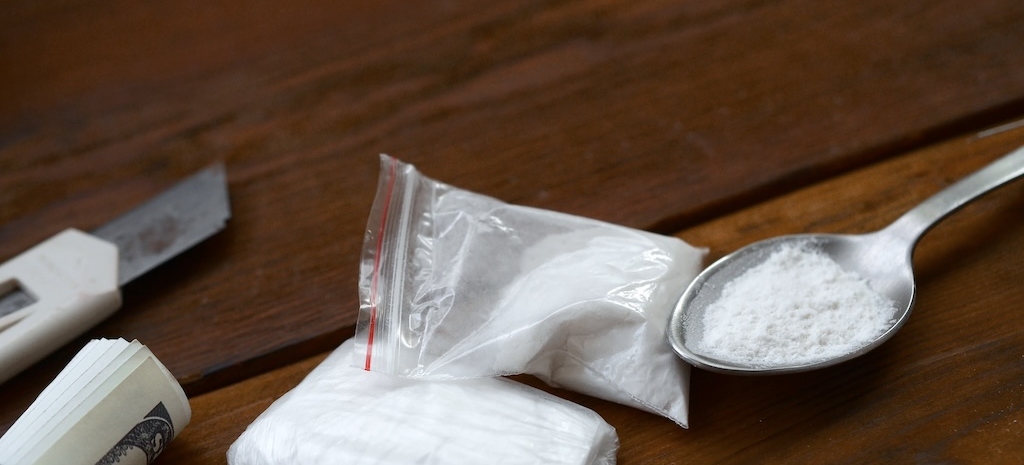Cocaine is an illegal stimulant that offers people feelings of euphoria. A cocaine high is not meant to last, but people often chase it over and over again because their brains get addicted. A drug like cocaine is extremely addictive and classified as a Schedule II drug.[1] Use of cocaine can cause significant long-term changes to the brain.[2] While using cocaine is always dangerous, freebasing is a dangerous way to use cocaine since inhaling the vapor from it can be more harmful than other ways of inhaling or using cocaine.[3] Find out why it is harmful and how to help a loved one with addiction or challenges using cocaine.
Freebasing Cocaine
What is freebasing? Freebasing cocaine involves inhaling the vapor from applying a heat source to the drug. It is referred to as freebasing but is not the same as smoking crack or attempting to smoke powdered cocaine. Freebasing is a method of using cocaine in its purest form by chemically altering the drug to remove its hydrochloride base. This process reduces the melting point of cocaine, making it more suitable for smoking, and allows it to reach the brain much faster than other methods of consumption, such as snorting or injection.
How Freebasing Works:
First, let’s answer, “What is the freebasing definition?” By a chemical process, the cocaine becomes free from the sodium base.[4] This is where ‘freebase’ comes from.
The process of freebasing involves converting cocaine hydrochloride (powdered cocaine) into freebase cocaine, which is a more potent and volatile form. This is done by:
- Extracting the cocaine base using a solvent such as ether or ammonia.
- Removing impurities to create a highly concentrated, smokable form of cocaine.
- Heating the freebase cocaine in a glass pipe or tube, often with a piece of copper or steel wool to distribute the heat.
- Inhaling the vaporized drug, which rapidly enters the bloodstream and produces an almost instantaneous and intense high.
The extraction process uses ether, which is highly combustible and often results in explosions in the labs that create cocaine.
Why Do People Freebase Cocaine?

Freebasing is a way to make the effects hit instantly, but they are more serious as a result. Freebasing cocaine provides the following effects to a user:[5]
- Enters the bloodstream and brain faster than other forms
- Faster than injection
- The high is more intense
- The comedown is worse
People freebase cocaine because it delivers an intense, rapid high that is often stronger than other methods of cocaine use. Since the drug reaches the brain almost immediately, users experience:
- A powerful euphoric rush
- Increased energy and alertness
- A sense of invincibility
However, because the effects wear off quickly—often within 30 minutes—users frequently chase the high by repeatedly using the drug, leading to rapid addiction and severe health risks.
How Long Does a High from Freebasing Cocaine Last?
When a person feels the effects of freebase cocaine, they don’t last long. After 30 minutes they are gone and the person comes down from the drugs. As it wears off, they may experience fatigue, anxiety, or even paranoia.[6] This can lead to difficulty physically and emotionally. Short-term, the effects are insomnia, excess sweating, and nausea, but long-term, the person may experience depression, paranoia, and anxiety. There are many health risks when a person smokes toxic drugs. The health risks are greater the longer a person uses drugs. To seek help for drug use, a person should find support from rehab centers that provide space to heal from addiction.
Health Risks & Dangers of Freebasing Cocaine

Freebasing cocaine is one of the most dangerous ways to use the drug. The process of heating and inhaling cocaine vapor leads to rapid absorption into the bloodstream, intensifying both the high and the associated risks. However, the immediate euphoria comes at a severe cost—both physically and mentally.
Short-Term Health Risks
The effects of freebase cocaine are almost instantaneous, but they wear off quickly, leading to an intense crash that can cause severe psychological and physical distress. Some of the most common short-term dangers include:
- Increased heart rate & high blood pressure – This can put sudden stress on the cardiovascular system, raising the risk of heart attack or stroke, even in young and healthy individuals.
- Severe paranoia & hallucinations – Freebasing cocaine can cause temporary psychosis, making users feel intensely paranoid, aggressive, or disconnected from reality.
- Excessive sweating & overheating – The stimulant effects can cause the body’s temperature to rise dangerously high, leading to heat exhaustion or even organ failure.
- Shortness of breath & lung damage – The intense heat from inhaling cocaine vapor can burn the delicate tissues in the lungs and airways, making breathing difficult and increasing the risk of chronic lung conditions.
Long-Term Health Consequences
Continued use of freebase cocaine severely impacts major organ systems and can lead to permanent damage, including:
- Severe respiratory issues – Chronic use can result in scarring of the lungs, chronic bronchitis, pneumonia, and even lung collapse due to the toxic chemicals inhaled.
- Heart damage & heart attacks – Long-term stimulant use weakens the heart muscle, increasing the risk of arrhythmias, high blood pressure, and sudden cardiac arrest.
- Neurological damage – Freebasing disrupts the brain’s normal dopamine function, leading to memory loss, difficulty concentrating, increased aggression, and heightened anxiety or depression.
- Increased risk of seizures & strokes – The rapid fluctuations in blood pressure and oxygen levels from freebasing can cause permanent brain damage.
Burns, Explosions, & Other Physical Dangers
Unlike other forms of cocaine use, freebasing presents unique risks due to the flammable chemicals involved in the preparation process:
- Severe burns to the hands, arms, face, and airways – Since freebase cocaine is smoked using an open flame, users often burn themselves accidentally, especially when under the influence.
- Inhalation of toxic chemicals – Heating cocaine can release dangerous fumes, leading to long-term lung damage and increasing the risk of cancer and respiratory diseases.
- Explosions from freebasing with ether – Ether, a common solvent used in the freebasing process, is highly flammable. Accidental ignition can cause deadly explosions, putting not just the user but others nearby at risk.
Psychological & Behavioral Dangers
Beyond the physical risks, freebasing cocaine also takes a devastating toll on mental health[7]:
- Extreme mood swings – Freebasing can lead to violent mood swings, with users becoming aggressive, erratic, or emotionally unstable.
- High addiction potential – Because freebasing delivers an intense and short-lived high, users quickly develop a tolerance and begin taking higher doses, leading to rapid dependence and addiction.
- Social & financial consequences – Many users experience severe financial problems, job loss, strained relationships, and legal trouble due to the compulsive nature of cocaine addiction.
Withdrawal & Overdose Symptoms from Freebasing Cocaine

Freebasing cocaine leads to intense psychological dependence, making withdrawal symptoms more severe than other methods of cocaine use. Because freebase cocaine delivers a rapid and extreme high, the body quickly develops a tolerance, requiring users to consume larger amounts more frequently to achieve the same effect. This cycle often results in severe withdrawal symptoms when a person stops using.
Common Withdrawal Symptoms
Withdrawal from freebase cocaine primarily affects the brain’s dopamine system, leading to severe psychological distress and intense cravings. Symptoms include:
- Cravings for cocaine – One of the most persistent withdrawal symptoms, leading to a high risk of relapse.
- Depression & suicidal thoughts – Freebase cocaine disrupts the brain’s natural dopamine production, causing severe mood swings, hopelessness, and even suicidal ideation.
- Severe fatigue & excessive sleeping – After prolonged stimulant use, the body experiences extreme exhaustion as it tries to recover.
- Restlessness & anxiety – Many users experience intense nervousness, paranoia, and difficulty focusing for days or weeks after quitting.
- Muscle pain & body aches – Physical symptoms include tremors, stiffness, and discomfort.
- Difficulty feeling pleasure (Anhedonia) – Since freebasing artificially stimulates dopamine levels, users often struggle with feeling pleasure from everyday activities after quitting.[8]
Freebasing Cocaine Overdose: Signs & Emergency Response
Because freebasing delivers a concentrated and highly potent dose of cocaine, the risk of overdose is extremely high. Unlike snorting or ingesting cocaine, which gradually enters the bloodstream, smoking freebase cocaine floods the brain with an overwhelming amount of the drug in seconds—dramatically increasing the risk of toxic effects.
Signs of Freebase Cocaine Overdose:
- Hyperventilation & difficulty breathing – A person may take shallow, rapid breaths or struggle to breathe.
- Dangerously high heart rate – Heart palpitations, chest pain, or irregular heartbeats are warning signs of cardiac distress.
- Seizures or convulsions – Overstimulation of the nervous system can trigger uncontrollable shaking or loss of consciousness.
- Stroke symptoms – Sudden confusion, numbness, weakness, or slurred speech can indicate a cocaine-induced stroke.
- Coma or loss of consciousness – A person who collapses, stops breathing, or is unresponsive requires immediate medical attention.
Emergency Response for Overdose:
- Call 911 immediately. Do not wait—cocaine overdoses can escalate rapidly and become fatal.
- Stay with the person and monitor their breathing. If they are unconscious but breathing, place them in the recovery position on their side.
- Do not attempt to force them to vomit. Unlike opioid overdoses, cocaine toxicity cannot be reversed with Narcan, making immediate medical intervention crucial.
- Avoid giving other substances. Some people attempt to “calm down” a cocaine overdose with alcohol or sedatives, but this can make the situation worse and lead to fatal interactions.
The best way to prevent overdose and long-term health complications is by seeking professional treatment for cocaine addiction.
Seeking Help for Cocaine or Crack Addiction

If you or a loved one is struggling with freebasing cocaine, it’s crucial to get professional help before the risks become life-threatening. The cycle of addiction doesn’t have to control your life.
At Last Resort Recovery, we specialize in helping men overcome addiction with evidence-based treatments, medically supervised detox, and personalized recovery programs. Our secluded, retreat-style setting provides a safe and supportive environment to heal.
Levels of Care in Austin, TX:
- Medically Supervised Detox – Safe, comfortable withdrawal under expert care
- Inpatient & Residential Treatment – 24/7 support for long-term recovery
- Behavioral Therapy & Counseling – Address the root causes of addiction
- Holistic Healing Approaches – Fitness, equine therapy, and nature-based recovery
- Specialized Treatment Programs – Specialized rehab programs for professionals, veterans, and more.
It’s never too late to reclaim your life. Recovery is possible, and it starts with a single step.


